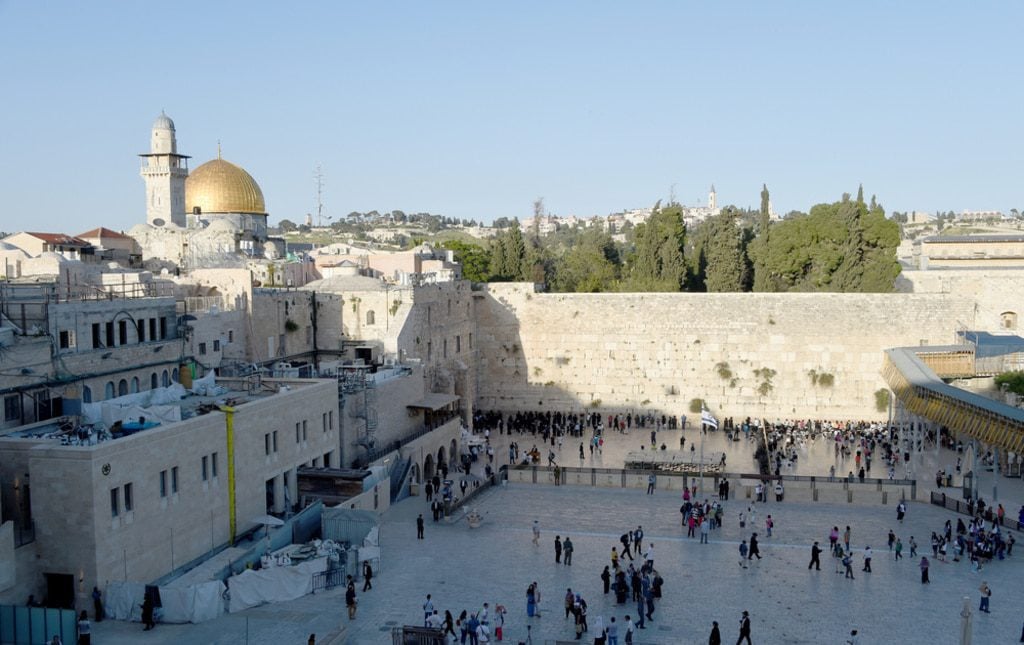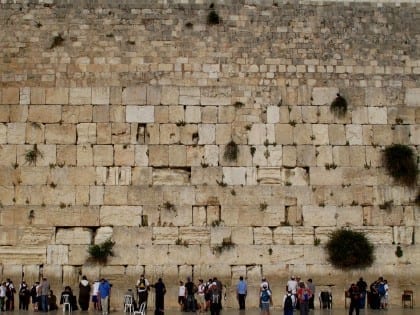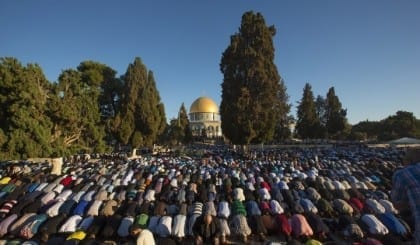
Five exclamation marks in one tweet is not a normal level of outrage displayed by a spokesperson of the Israeli Ministry of Foreign Affairs. Yet after UNESCO, the United Nation’s cultural body, on 26 October 2016 adopted a contentious resolution on the conservation of Jerusalem’s religious heritage, which, according to Israel, denies Judaism’s deep ties to one of the city’s holiest sites, spokesperson Emmanuel Nahshon tweeted that the vote was ‘a piece of rubbish, rightly dumped in the garbage can by our Ambassador!! Long live Jewish Jerusalem!!!’
He was not the only Jewish Israeli who was unhappy. Prime Minister Benjamin Netanyahu recalled Israel’s UNESCO ambassador in protest at the decision. The centre-left opposition leader Isaac Herzog of the Zionist Union accused UNESCO of promulgating blood libels – a very serious allegation of anti-Semitism. Yisrael Hasson, director of the Israel Antiquities Authority, even compared UNESCO to the Islamic State.

All this anger underlines the importance of the site – revered by Jews as Temple Mount and by Muslims as Haram al-Sharif – where Jews believe two Jewish temples once stood, the second of which was destroyed by the Romans in 70 AD. For the last two thousand years, Jews have mourned the loss of their temples at the Western Wall. Since the early Middle Ages, two Muslim shrines – the Dome of the Rock and al-Aqsa Mosque – have dominated Temple Mount. The site is located in East Jerusalem, which is at the heart of the Israeli-Palestinian conflict. Israel, which captured East Jerusalem in 1967, considers all of Jerusalem as its capital, while the Palestinians regard East Jerusalem as the future capital of an independent state.
So exactly how ‘rubbish’ and anti-Semitic is the UNESCO resolution?
According to Ofer Zalzberg, a Jewish Israeli and an analyst at the NGO International Crisis Group, the resolution is “about whether the site is managed according to UNESCO standards, not about the religious link of the site with Judaism or any other faith.” However, he continues, the text of the resolution refers to the site only by its Arab name, Haram al-Sharif, and that is what hurts the Jews the most.
Zalzberg identified a couple of reasons why the UN may have done this. Firstly, he said, the Palestinians have enjoyed virtually automatic support from Muslim, Arab and non-aligned countries, and thus have in effect a majority in the UN. Secondly, European states have been careful to avoid recognition of the Jewish link to the site as long as the conflict is ongoing, fearing that such recognition will contribute to the erosion of the so-called status quo agreement, according to which only Muslims can worship at the site while non-Muslims are to enjoy free access.
Since Israel has united against UNESCO in a way that was previously reserved for its arch-enemy Iran or the human rights organization B’Tselem, it is hard to speak up against the consensus. Yet Zalzberg dares to say that the Israeli version of events “overstates” the severity of the issue. “UNESCO did not take an explicit decision according to which the site is not holy to Jews,” he said. However, he thinks that the exclusive use of the Arab name indirectly negates the Jewish link to the site. “There is some merit to the Israeli government’s claim that this is problematic.”
Even Meretz, the most left-wing Zionist party in the Knesset, Israel’s parliament, has protested the UNESCO resolution. Its leader, Zehava Gal-On, wrote on her Facebook page that UNESCO ‘cannot erase years of Jewish history’. This suggests, according to Zalzberg, that in the current climate in Israel, it is virtually impossible for left-wing leaders to say publicly that UNESCO negates the link only indirectly, because this would be seen as siding with a hostile international institution.

For their part, the Palestinians fear that Israel wants to change the fragile status quo at the contested site. Indeed, several members of the Israeli government have called for exactly this. Minister of Agriculture Uri Ariel, of the ultra-nationalistic party The Jewish Home, even called for a third temple to be built, for which the Dome of the Rock and al-Aqsa would have to be demolished. In that sense, said Zalzberg, the Palestinians’ suspicion is not unfounded. “However, more concretely, Netanyahu clearly will not end the non-Muslim prayer ban in the foreseeable future. Netanyahu knows this will lead to a major rupture in relations with Israel’s Arab allies and will ignite major violence in Jerusalem and the West Bank. He does not want either.” On this front, Zalzberg concluded, the Palestinian fear is “exaggerated”.
Only some Israelis who are perceived as far-left, such as Haaretz journalist B. Michael, have dared to contradict the nationwide commotion. In an op-ed, B. Michael – the pen name of Michael Brizon – stated that ‘Israel’s whining over UNESCO is arrogant and hypocritical, coming from a state that does everything in its power to conceal or minimize everything that existed here before we came, and after we left, until we returned’.
Michael points to several Israeli landmarks that were built on top of Arab cemeteries: the Independence Park in Jerusalem; the Independence Park in Tel Aviv; the Museum of Tolerance in Jerusalem; and the Peres Center for Peace in Jaffa. This is how it works, Michael concluded. “Our holy sites are holy forever. Their holy sites are like the dust of the earth – a lot on which to create a park, scaffolding on which to build temples to ‘peace and tolerance’.”
More criticisms of Israel can be found in the UNESCO resolution itself. Apart from the language used, and the issue of religious links to the site, UNESCO also ‘deplores the Israeli decision to approve a plan to build a two-line cable car system in East Jerusalem (…) as well as the construction of the so-called ‘Kedem Center’, a visitor centre near the southern wall of the mosque’.
It seems abundantly clear that the Israeli government, together with the right-wing Israeli NGO Elad, is doing everything in its power to ‘Judaize’ the – occupied – surroundings of the disputed holy sites. And this is one thing the Israeli lamentations about the ‘missing link’ have achieved: no one is talking about these underlying issues.


